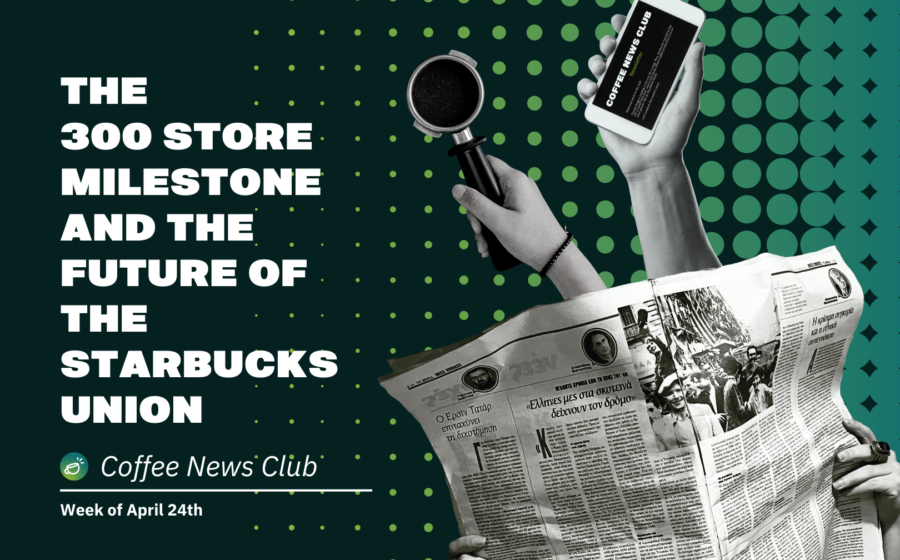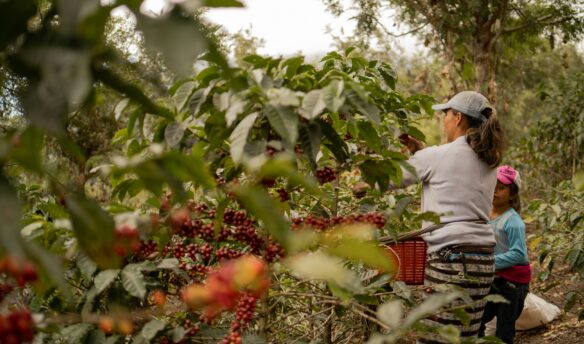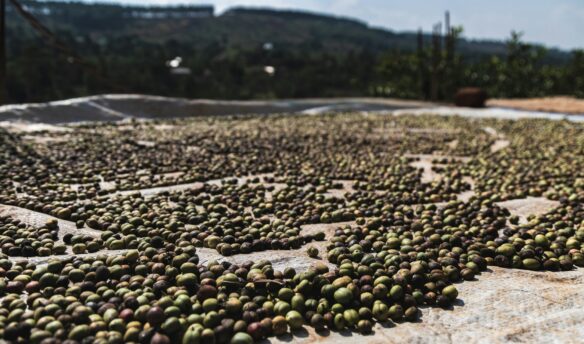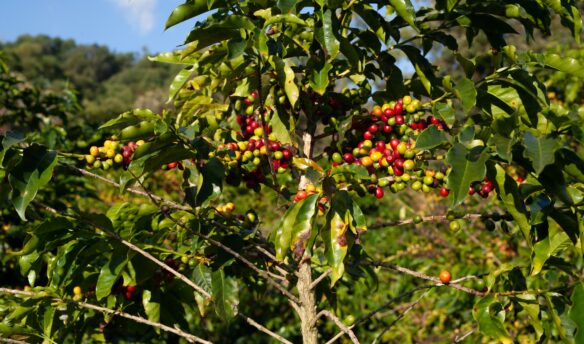Starbucks unions pass the 300 mark. Plus, another year of coffee shortages, and the SCA proposes a more holistic approach to coffee evaluation.
‘SCA Launching Beta Version of Sweeping New Coffee Evaluation System’ – via Daily Coffee News
Last week, the Specialty Coffee Association (SCA) announced it would be reappraising the role and impact of coffee cuppers within the industry. Now, the organization has released details of a new system that promises a more holistic approach to coffee evaluation.
Currently in beta form, the Coffee Value Assessment (CVA) will eventually replace the SCA’s current cupping protocol and cupping form. Both tools are widely used throughout the specialty coffee industry but have not been significantly revised since 2004.
“Given the vast membership and market influence of the United States- and Europe-based SCA,” Daily Coffee News writes, “the new system has the potential to dramatically refine and reshape how coffee is evaluated, and thus valued, by actors throughout the coffee chain.”
The importance of the SCA’s cupping form shouldn’t be underestimated: its current form is used across the industry to assess specialty coffee with a single score, often used as the basis for buying decisions and can greatly impact how much a farmer is paid for their coffee. The new form will combine other assessment metrics to give a more rounded view of a coffee’s value. Instead of merely relying on a single score on a 100-point scale, the new cupping form will also include the taster’s “impression of quality” separated from physical and sensory characteristics to produce a complete representation of a coffee’s quality.
The SCA says this will reflect best practices in sensory and consumer science and make cupping compatible for the first time with scientific research. The CVA has been in the works for nearly three years and will be refined through an early-adopter program designed to elicit community feedback before going through the SCA’s standards development procedures.
SCA CEO Yannis Apostolopoulos said in an announcement, “This new holistic understanding of value, in addition to the assessments’ compatibility with scientific research, will create more robust, transparent records of what is valued and by whom, on a large scale, allowing us to create a more accessible value discovery tool.”
‘ICO Forecasts Second Consecutive Year of Supply Gap’ – via STiR Coffee and Tea
The International Coffee Association (ICO) predicts the global coffee market will suffer a supply deficit for the second year. The first edition of the ICO’s bi-annual publication, the Coffee Report and Outlook, estimates the market will be short around 7.2 million bags of coffee due to steady growth in consumption and lower expected output.
Brazil will be in the “up year” of its biennial cycle—trees produce more coffee in alternating years. Despite this, production worldwide is expected to be hampered by adverse weather conditions and increased fertilizer costs. South America will continue to be the world’s largest producing region, with its output predicted to rise by more than six percent. However, this won’t offset drops from the previous year, the region’s most significant production decline in nearly two decades as Brazil’s down year combined with bad weather across the continent.
The report also discusses consumption trends for 2022/2023: coffee consumption is expected to grow 4.1% in Africa, 3.1% in Asia and the Pacific Islands, and 2.6% in the Caribbean, Central America, and Mexico. Although Europe remains the leading consuming market, consumption is expected to stay flat at 0.1%.
The report notes that cost of living increases worldwide will impact coffee consumption in the coming year, with consumers looking to “exchang[e] from the most costly down to the most economical forms of coffee.”
‘Starbucks Workers Unionize 300th Store Less than 18 Months After First Win’ – via Truthout
A Starbucks in Sacramento became the 300th store to unionize, 18 months after the first store in Buffalo, New York, kicked off a unionization effort that’s swept across the nation, garnered international media attention, and been the subject of a Congressional hearing. While the pace of unionization has slowed from its peak—the 100th and 200th stores unionized within two months of each other in the summer of 2022— elections keep happening and moving forward, despite Starbucks’ continued combative response to union efforts.
“I am overjoyed that despite Starbucks using every dirty trick to deter us, we were able to become true partners in the company,” said barista and organizer Maizie Jensen, whose store voted 11-2 in favor of unionizing. “We could not have done it without our union siblings at the 299 stores that came before us, and we are thrilled that our store can represent such an impressive milestone.”
“For the 3% of our U.S. stores that have elected representation, we are committed to engaging in good faith collective bargaining wherever a union has been appropriately certified,” a Starbucks spokesperson said in response. The company also noted that a different Sacramento location had voted against unionizing the week before.
According to the National Labor Relations Board, Starbucks workers have won 80% of their union votes, and more than a dozen elections are scheduled for the coming weeks.
More News
‘Here’s Everyone Competing For The 2023 US Barista Championship’ – via Sprudge
‘Weber Workshops Launches Moonraker WDT Tool in the Espresso Space’ – via Daily Coffee News
‘The Sprudge Twenty Class Of 2023—Presented By Pacific Barista Series’ – via Sprudge
‘Luckin Coffee Surpasses 9,000 Stores in China Following Rapid First Quarter Expansion’ – via World Coffee Portal
‘New Ikawa Pro100x Sample Roaster Takes Fresh Approach to First Crack’ – via Daily Coffee News
‘Brazil’s Coffee Co-op Expocaccer to Open Subsidiary in the US’ – via Nasdaq
The Week in Coffee Unionizing
- Starbucks Workers United released a list of proposals to address “some of the biggest and most common issues we face in our stores.” The solutions are all things the union has been requesting since the beginning and include the right to organize—something the NLRB protects but that Starbucks has systematically fought—as well as a $20 per hour starting wage, better health and safety procedures, and full benefits for all workers, among other proposals.
- Starbucks workers aren’t stopping at 300: a store in Columbus, OH, voted to join the Starbucks union, while multiple other locations announced their intent to unionize over the last few days. “We’re all incredibly proud to join thousands of our fellow workers across now more than 300 stores in fighting for better pay, better benefits, and a more democratic workplace,” a barista from the Columbus store said.
- It’s not just the US, either: workers at a Starbucks in Edmonton, Canada, have voted to join the United Steelworkers union. The union fight in Canada is once again picking up steam after a run of short-lived victories in the early 2000s. A store in Victoria unionized in 2020, followed by several more locations across British Columbia and Alberta, all organized with UWS. “Voting in favor of a union means voting for fairness between Starbucks and its employees,” said barista Hudson Gluckie. “It also means solidarity with fellow workers and the opportunity to enact changes benefiting workers and not only the corporation.”
- Employees at the original Ben & Jerry’s location in Burlington, VT, have filed to join Workers United, the same union that has helped Starbucks workers unionize. In contrast to Starbucks, the company indicated that it would recognize the union: “Ben & Jerry’s is committed to the goal of operating our company in a way that is fair, inclusive, and equitable, while being a dynamic and fun place for all workers. We welcome the steps taken by the workers at our company-owned Scoop Shop in our hometown of Burlington, VT.”
The Week in Corporate Coffeewashing
Starbucks continues to expand its Greener Stores program, introducing sustainable and lower-impact cafes to Asia, Europe, the Middle East, and Africa. Developed in partnership with the World Wildlife Fund, these cafes are “designed to accelerate the transformation of retail outlets towards lower-impact stores with reduced carbon emissions, water usage and waste to landfill.”
The Greener Store Framework, introduced in 2018, assesses Starbucks locations against 25 standards across various impact areas such as energy efficiency and waste diversion. There are over 3,500 certified Greener Stores globally, a number the company aims to grow to 10,000 by 2025.
This is all part of Starbucks’ stated aim to halve its carbon emissions by 2030. Chief Sustainability Officer Michael Kobori said the Greener Store project “move[s] us closer towards our resource positive goals.” At the same time, Starbucks is pursuing an aggressive growth strategy, planning to open an additional 10,000 new stores by 2025 to bring its global total to 45,000. Its revenue in 2022 was more than $32 billion.
In 2021, Starbucks produced 14,706 thousand tons of greenhouse gasses, more than Costa Rica did in the same year while generating 1,183 thousand tons of waste and extracting more water than Equatorial Guinea.
Is Coffee Good For You?
Many studies have found that coffee lowers the risk of developing type 2 diabetes. But new research from Harvard University has shown that drinking coffee (as well as tea and regular ol’ water) might lower the risk of premature death by upwards of 26% in those already suffering from the disease.
The study, published in the BMJ, analyzed data from two studies in the US, including more than 15,000 participants with type 2 diabetes. Respondents were surveyed every two to four years for an average of 18 years and were asked questions about their consumption of various drinks, including fruit juice, beverages containing sugar and artificial sweeteners, low-fat and whole milk, and, of course, coffee.
While sugar-sweetened beverages were associated with an increased risk of death, coffee was associated with a 26% reduction in risk.
In an accompanying editorial, Nita Forouhi from the University of Cambridge in the UK wrote that because the study was observational, it cannot prove cause and effect. It remains uncertain if the findings would apply across disease severity or glycaemic control: “It is also unclear whether the findings apply to different population groups defined by age, ethnicity, and geography as the study cohort were all US health professionals, predominantly white.”
Nevertheless, “the case for avoiding sugar sweetened beverages is compelling,” Forouhi continued, and “it is reasonable to shift the focus to drinks that are most likely to have positive health impacts: coffee, tea, plain water, and low fat milk.”
Beyond the Headlines
‘Building a Coffee Supply Chain Through the Lens of Racial Equity’ by Phyllis Johnson
‘Column: How Coffee is Both a Hero and a Villain in the Climate Change Story’ by Cory Gilman
‘Sometimes, the Nearest Exit Is Behind You’ by Ashley Rodriguez















